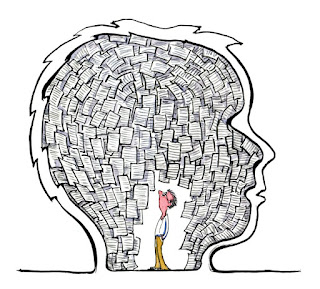Prepositions are one of the most difficult aspects of learning English. They don't have fixed meanings, they can change easily from context to context and they have a lot of different usages in different instances. Well then, how can a person learn English prepositions properly? Here are some facts and suggestions:
First of all, there is a grim reality that you have to accept. It is nearly (not totally) impossible for a non-native speaker to master some features of English completely. Prepositions are one of these features. As a non-native English speaker, I might be making some prepositional mistakes myself while I am writing this. You can even see native speakers talking about which preposition is the right one to use in a specific situation. That is why you have to accept that you can easily make preposition mistakes and as long as you are understood by other people, it is OK to do it. Our aim is going to be to minimize the amount of these mistakes.
Despite these problematic aspects, an English learner should try to master the usage of prepositions as best as he or she can. There is one way which is the simplest and the most effective is exposure.
Showing posts with label vocabulary. Show all posts
Showing posts with label vocabulary. Show all posts
How to deal with vocabulary problems while speaking?
Among the problems of speaking, vocabulary is a really important one, maybe the most important. The lack of vocabulary items, having a lot of passive vocabulary rather than active vocabulary, lack of vocabulary practice through production are some of the reasons for this issue. Due to these reasons, the speaking ability of a person can be restricted to a great extent. In this post I will share some possible ways to deal with vocabulary problems while speaking to shed light on situations and answer questions such as ''How can I overcome speaking problems while speaking?'', ''I can't remember words I normally know while speaking.'', ''How can I improve my active vocabulary?'', ''How to improve vocabulary usage in speaking?'', ''How to use vocabulary actively?'' etc.
- Focus on your active vocabulary as well as your passive vocabulary. When you encounter words while reading and speaking, these words are generally added to your passive vocabulary. If you just check their meanings and move on, you may have problems later when you try to use these words in writing and speaking. In order to avoid this problem, use the words that you learn by writing and speaking. You can form one or two sample sentences by writing and speaking when you learn a sentence. The more practice you do the easier it will be to recall that word.
- Learn English words with their synonyms and similar words. This step is really helpful when you can't remember words easily. For example you can keep the word 'take part' as 'participate' on your mind rather than matching it with a word in your native language. You can keep 'exhausted' as 'tired' on your mind. They aren't synonyms but they are similar. If you can't remember one of them, you can use it for the other.
How to learn a lot of English words quickly in a short period of time?
Without words to use them, English grammar, reading, listening, writing and speaking are nothing. We need words to express ourselves by using these language systems and skills. One way or another you have to learn English words. Let me share a strategy which I used and worked really effectively for me with you.
- First thing you will do is to drop by the first stationery you find and buy lots of sticky notes. If you don't know what sticky notes are, they are the things in the picture above. Now lets talk about what you are going to do with them.
Subscribe to:
Posts (Atom)



